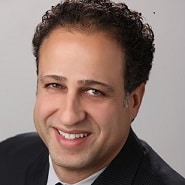
Anthony Guerra, Editor-in-Chief, healthsystemCIO.com
The beauty of a mega conference like HIMSS, or even a smaller, more-focused event like the CHIME-HIMSS CIO Forum, is that 100 attendees can come away from 100 different perspectives (or more, for that matter). Last week’s event was no exception. Some came away with a renewed focus on empathy when it comes to patients and families, while others saw it as an opportunity to dive deeper into topics like artificial intelligence. For many, HIMSS19 seemed to focus less on shiny objects, and more on improving outcomes.
To learn what our audience took from the show, we posed the following question to a handful of industry leaders:
What was the most impactful thing you heard at HIMSS19 – whether it was from a keynote address, a presentation or a casual conversation – about where we are headed as an industry?
Below are the responses we received.
“We shouldn’t need to be a patient to appreciate the challenges we inflict.”

Rounding with purpose is not only for C -level leaders. The infrastructure teams and operational teams should shadow their customers and fully appreciate the impact they have on the patient experience. Observe what happens when a system outage occurs and clinicians are using downtime procedures. It’s not pretty. Witness firsthand the impact on patients who are awaiting treatment and dealing with anxiety related to their medical issues.
-Jimmy Weeks, VP of IS, Yale New Haven Health
“You can move mountains in healthcare.”
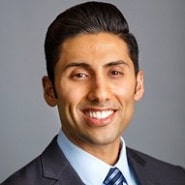
But, you cannot achieve this without understanding how your people work. Without understanding what inspires them and how you must, as their leader, support them. People don’t want to spend a large part of their life working for someone or toward something that does not bring them a feeling of accomplishment, community, and joy. Most healthcare CIOs, at this point, understand EHRs, infrastructure, analytics, and everything else that goes along with IT. But, in addition to that, I choose to put a lot of my energy towards striving to build relationships and invigorating my organization. I choose to concentrate on the humans behind the tech.
-Saad Chaudhry, Associate CIO, Anne Arundel Health System
“Focus on the commonality that binds all of humanity.”
HIMSS19 started off with an amazing keynote by Surgeon General Vivek Murthy on the societal impediment to care that loneliness presents and the clinical importance of spending non distracted quality time with those you love. This importance was further reinforced by Hal Wolf during the HIMSS19 Awards Gala in emphasizing the critical importance that spouses, significant others, and families play behind the scenes supporting each and every healthcare professional with devoted love and support during the best and worst of times. Thematically, I took away from this HIMSS that we need to stop looking towards technology to try and solve every single problem in healthcare, and instead focus on the commonality that binds all of humanity together – love, trust, and family.
-Aaron Miri, CIO, Dell Medical School & UT Health Austin
“HIMSS19 focused on the really important evolutions in healthcare.”
It wasn’t so much a singular event, but rather, a true convergence of what was being emphasized at HIMSS versus the realities we in health IT deal with in real life. Previous HIMSS events seemed to revolve around a new, shiny object, but HIMSS19 focused on the really important evolutions in healthcare. The three big areas at HIMSS19 that I noted were AI, cybersecurity, and overall patient experience.
-Rich Temple, VP & CIO, Deborah Heart and Lung Center
“The consumerization of healthcare is finally about to begin.”
Through AI and interoperability, it’s time to finally get the right information to the right person at the right time in the care journey – to both clinical teams and patients – which means digital identity will play a much larger role as we expand data collection from medical IoT and access to information. The consumerization of healthcare is finally about to begin!
-Carina Edwards, SVP, Customer Experience and Corporate Development, Imprivata
“We still have a lot of learn about how information is presented.”
I think the most interesting thing was the opportunity to have conversation with both CMS and ONC related to their respective NPRMs that were made available on Feb. 11. The other item that was encouraging is that there seems to be a theme about putting the patient in the middle of their healthcare. There have been lots of folks talking about it for years, but it really do feel like there is a lot of energy being put behind this approach. I think it’s a good thing; however, I do want the industry to be cautious about making the patients the source of their healthcare information without a level of refinement and education. I think we still have a lot of learn about how information is presented from within this very complex system we call healthcare.
-Chuck Christian, Executive Engagement Director, Indiana Health Information Exchange
“We are part of a team, community, industry and world that needs to work together.”
The most impactful thing I heard – and have talked about several times since the show – was the keynote by Dr. Vivek Murthy Former US Surgeon General. Dr. Murthy had three great insights that I believe were extremely relevant to Health IT leaders. The first was health related. Loneliness and isolation create a chronic state of stress in people and the impact on health is more devastating than obesity. This is a condition that currently affects between 20 and 40 percent of the population and will impact each of us at some point in our lives. The other two concepts are closely related to each other and are very powerful: “Success is created in relationship with others,” and “Model interdependence; we need each other.” These are powerful reminders that we are part of a team, community, industry and world that needs to work together to solve the challenges we face in healthcare for the good of all of us.
-Bill Russell, CEO, Health Lyrics (Former CIO, St. Joseph Health)
“Relationships are our greatest sources of strength to create a truly connected society.”
The most impactful thing I heard this year was the effect that loneliness has on your body. As Dr. Vivek Murthy delivered his keynote during the CIO Forum, he noted that we must appreciate the importance of emotional well-being. Loneliness has the equivalent of smoking 15 cigarettes a day, and it is exacerbated by modern day consumerism and social media. As leaders of technology, we need to use social media for good and help drive it for the betterment of society. You have to build social connections in the modern world, and one of the best ways we can do that is to reach out and help others. Despite all of our advances, our connections and relationships are our greatest sources of strength to create a truly connected society. It’s where people can feel valued, safe, known and seen. People need people, be present, be helpful, and remember our gifts! We are not built to go it alone.
-Sarah Richardson, CIO, CA & NV Market, HealthCare Partners, a DaVita Medical Group
“We can really improve current problems of packet availability and bandwidth.”
The most impactful thing I heard was the potential of 5G. 5G is looking beyond traditional networks, fiber, and the usual connectivity hardware. They are looking at augmenting and eventually replacing the traditional network backbone with cellular technology. Mind blown, due to how we currently use cellular. However, once the infrastructure is installed and medical devices are capable of transmitting through this medium, we can really improve current problems of packet availability and bandwidth limitations.
-Chani Cordero, CIO, Carl R. Darnall Army Medical Center
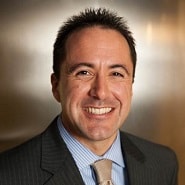


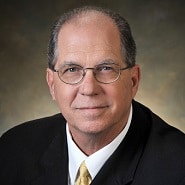
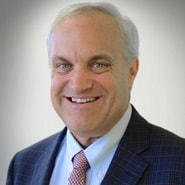
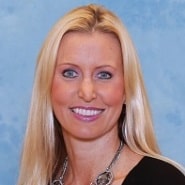



Share Your Thoughts
You must be logged in to post a comment.